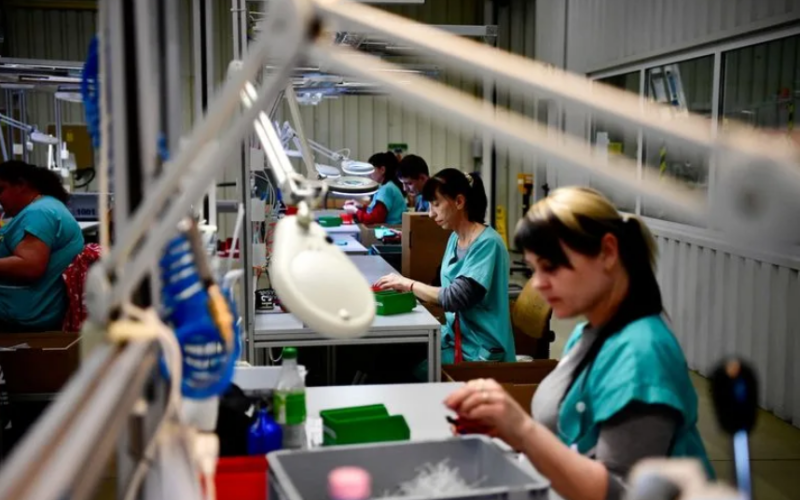Central Europe is grappling with the adverse effects of Germany’s economic downturn, posing a significant hurdle for countries in the region still recovering from the aftermath of the COVID-19 pandemic. The once-beneficial trade ties with Germany and its prominent auto sector, which were pivotal for the region’s growth, are now becoming potential drags on the economies of Hungary, Czech Republic, Slovakia, and beyond. The combination of Germany’s near-recessionary outlook and global geopolitical uncertainties has spurred local companies to seek diversification and explore alternative markets.
Germany’s economic woes are reverberating through Central Europe, affecting countries that had relied on robust trade ties and shared economic interests. The region, which witnessed some of the world’s most severe inflation spikes post-pandemic, is now confronted with the challenge of navigating through a downturn in Germany. Moody’s Analytics Director, Dawn Holland, highlights the risk of economic setbacks in Central and Eastern Europe (CEE), especially given the persistent weakness in the auto sector.
Central Europe’s inflation surge, notably Hungary’s eye-watering 25% inflation rate last year, has prompted central banks to raise borrowing costs to levels unseen in two decades. The Czech Republic, in particular, is experiencing the most prolonged fall in real wages, spanning eight successive quarters. The economic headwinds from Germany intensify the challenges posed by inflation, forcing a recalibration of monetary policies to maintain stability.
The close economic ties between Central European nations and Germany have been a double-edged sword. While Germany’s companies had a substantial annual turnover in the region, providing employment for millions, the current economic downturn in Germany is having cascading effects. Countries like the Czech Republic and Hungary, heavily reliant on Germany for exports, are now facing potential revenue declines and subsequent impacts on their job markets.
In response to the economic downturn in Germany, some local companies are proactively seeking diversification strategies. Efforts include tapping into alternative overseas markets and venturing into industries like defense to offset the economic weakness stemming from their significant Western neighbor. However, these diversification endeavors are challenged by ongoing geopolitical uncertainties, such as the Ukraine war, Middle East conflicts, and rising protectionism.
Germany’s automotive sector, once a cornerstone for economic collaboration, is grappling with challenges ranging from weak sales to global shifts towards electric mobility. The decline in demand for cars, exacerbated by inflation, interest rates, and economic uncertainties, is affecting companies across Central Europe. Hungary’s proactive approach in attracting investments in battery and electric car manufacturing is seen as a strategic move amid the broader industry slowdown.
The economic slowdown in Germany poses challenges for Central European nations in reigning in budget deficits. Rating agencies express concerns about the region’s fiscal consolidation plans, emphasizing the risk of “exceptionally wide” budget deficits in historical terms. The prolonged weakness in Germany could impede medium-term growth and complicate fiscal consolidation efforts in Central and Eastern Europe.
As Central Europe navigates the complex economic landscape shaped by Germany’s downturn, the region faces critical decisions to ensure stability, growth, and fiscal discipline. Diversification efforts and adaptation to evolving global economic dynamics become imperative for local businesses, and policymakers are tasked with striking a delicate balance between addressing immediate challenges and fostering long-term resilience. The evolving situation in Germany, coupled with geopolitical uncertainties, underscores the need for a strategic and proactive approach to sustain the region’s economic recovery.








